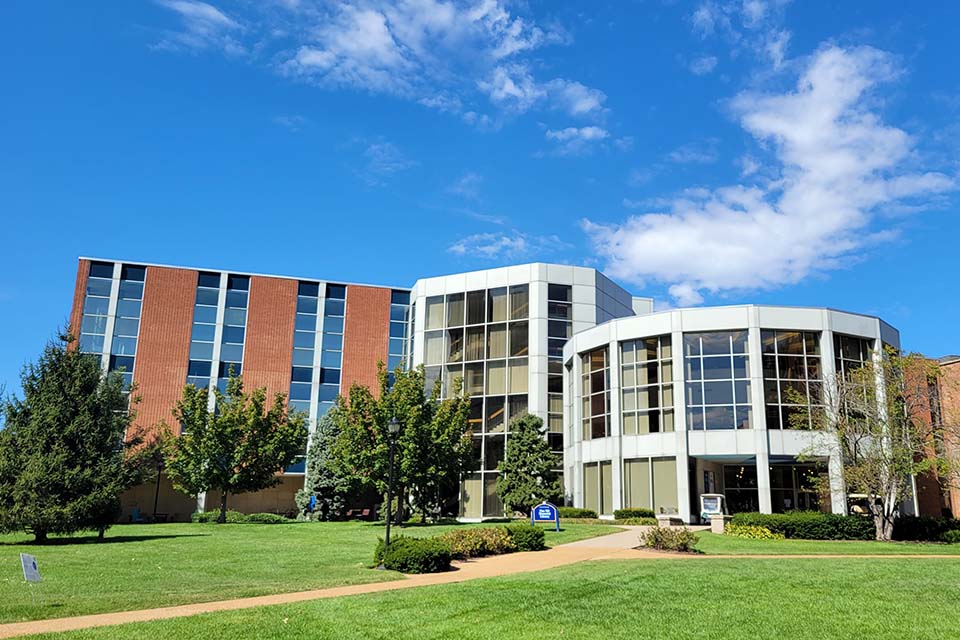Fontbonne University’s Center for Bosnian Studies Moving to Saint Louis University
This summer, Saint Louis University will become the permanent home of Fontbonne University’s renowned Center for Bosnian Studies. Fontbonne has played a significant role in the academic and cultural landscape of St. Louis, and this transition ensures that the Center's mission continues and its work remains accessible to both the St. Louis community and scholars worldwide as Fontbonne ends instruction and closes its operations after the summer term.
Founded in 2006 as the Bosnia Memory Project, the Center is the only initiative of its kind in North America. For nearly two decades, it has been a hub for preserving the stories, artifacts and experiences of Bosnian genocide survivors and their families. The Center has a particular focus on St. Louis’s Bosnian community, which numbers more than 60,000, making it the largest Bosnian population outside of Bosnia and Herzegovina.
“We are honored to continue the Center for Bosnian Studies’ critical work of cultural preservation and education at Saint Louis University,” said Jennifer Nutefall, dean of Libraries and Museums at SLU. “By bringing the Center to SLU, we can ensure that the voices of Bosnian genocide survivors and their families are not only preserved but continue to be heard and honored for generations to come.”
The Center will bring its unique oral histories, rare collections, circulating materials, and growing digital archives to the Saint Louis University Libraries Archives, which are part of their Department of Distinctive Collections and Digital Services. As the Center moves to SLU, it will continue its core mission through several key priorities and initiatives:
- Recording interviews with genocide survivors and their families.
- Preserving books, letters, photographs, and artifacts that document Bosnian culture and history.
- Hosting events that highlight the experiences of Bosnian St. Louisans.
- Developing initiatives to deepen understanding of Bosnia, its diaspora, and its history.
- Contributing to academic programming in collaboration with faculty and students.
As part of the transition, Adna Karamehic-Oates, Ph.D., the Center’s director, and Rebecca van Kniest, a professor and librarian who serves as the Center’s archivist, will continue their work in similar roles at SLU.
In a joint statement, Karamehic-Oates and Benjamin Moore, Ph.D., the founder of the Bosnia Memory Project, said: “We are grateful for Fontbonne University’s support and stewardship of the Center’s work over the years. This transition is a new chapter with opportunities to grow the collections and advance the Center’s mission of documenting the evolving story of one of America’s most important immigrant communities.”
SLU has a rich history of supporting the Bosnian community in St. Louis, dating back to the 1990s when the University provided resettlement aid and scholarships to Bosnian refugees fleeing the war and genocide. SLU faculty and students have contributed to research and projects over the years that amplify the voices of Bosnians in the region, ensuring their experiences and contributions remain part of the fabric of St. Louis.
Patrick McCarthy, associate dean of libraries and medical center library director at SLU, played a role in the founding of the Bosnia Memory Project. He also is the co-author of “Bosnian St. Louis: Between Two Worlds” with Akif Cogo, assistant director of custodial services at the University.
“This move represents an extraordinary opportunity to preserve and grow the legacy of the Center for Bosnian Studies,” McCarthy said. “SLU’s deep connections to the Bosnian community in St. Louis position us uniquely to elevate the Center’s work, fostering dialogue and understanding for future generations.”
As the Center transitions to SLU, the University will work to sustain its existing partnerships — including those with the Missouri Historical Society, St. Louis Kaplan Feldman Holocaust Museum, area high schools, and the Srebrenica Memorial Center — and to ensure ongoing philanthropic support from the individuals and organizations that have made the Center’s work possible.


















